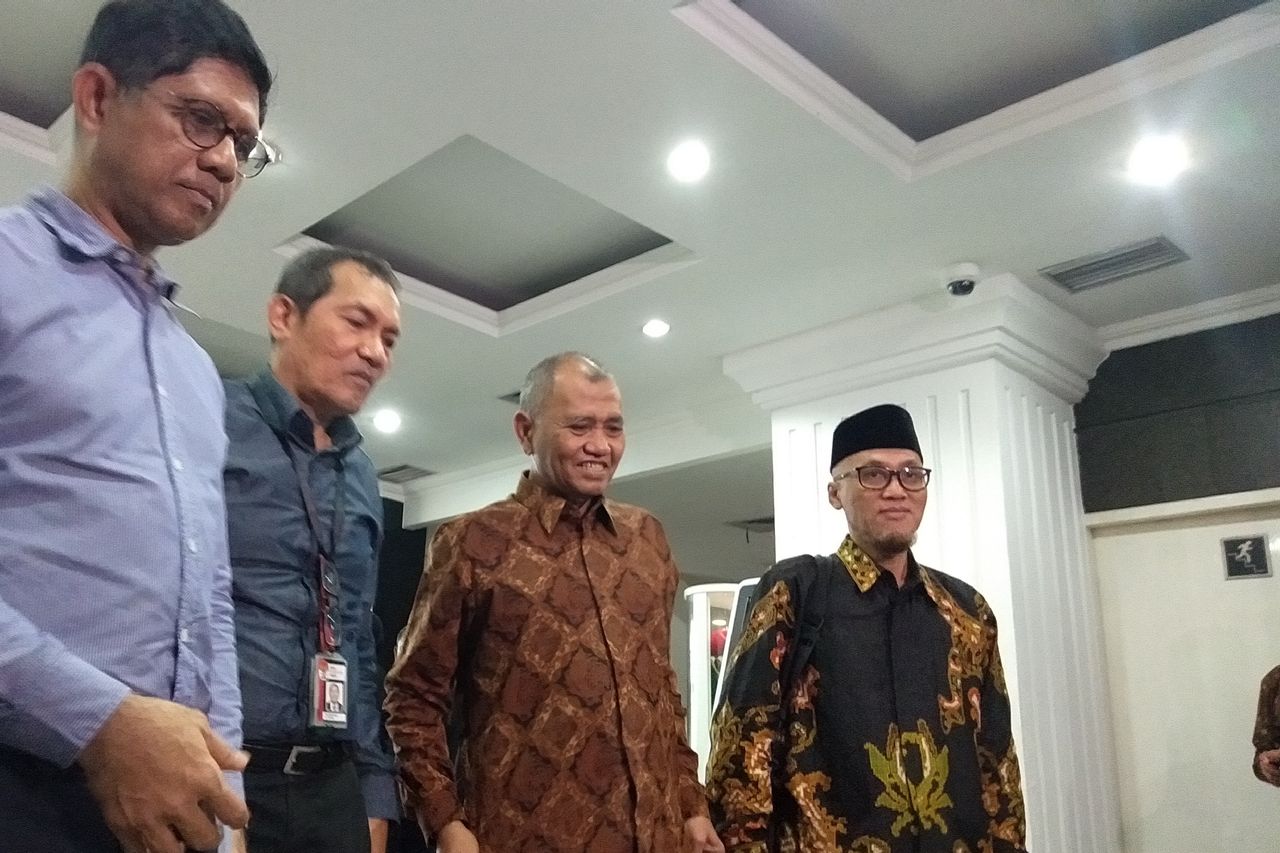When Agus Rahardjo, Saud Situmorang And Laode Syarif Submitted A Judicial Review On The KPK Law

JAKARTA - Agus Rahardjo, Laode M. Syarif, and Saut Situmorang submitted a judicial review (JR) of Law Number 19 of 2019 concerning amendments to Law Number 30 of 2002 concerning the KPK.
The three KPK commissioners submitted applications on behalf of individuals and Indonesian citizens. In total, there are 13 applicants in their personal names. Among them are former KPK commissioners Mochammad Jasin and Erry Riyana Hardjapamekas, as well as a number of other anti-corruption activists.
The petitioners arrived at the Constitutional Court (MK) building at around 15.00 WIB. Two other KPK commissioners, Basaria Panjaitan and Alexander Marwata, were not seen. They are also not registered in the list of applicants for this judicial review.
In this petition, they submitted a formal judicial review, namely a review of the process of forming a Law. Broadly speaking, Laode revealed that there were three points that were inconsistent with the requirements for the formation of laws in the KPK Law.
"First, the deliberation process was carried out in a hurry. The law was not included in the National Legislation Program but suddenly appeared. Second, the discussion did not involve public consultation. In fact, the inventory list of problems in the law was not shown to the KPK as the main stakeholder," Laode said at the location, Wednesday , 20 November.
"We have never shown the three academic papers to the public. So many things have been violated. That is from a formal perspective," he continued.

In this request, KPK commissioners position themselves as KPK employees and citizens. Laode said the reason for positioning himself as a KPK employee was because this law had the potential to hinder the work of the anti-graft agency. Meanwhile, the position of citizens is because Laode feels that poverty in Indonesia is increasing due to the many corrupt practices.
"Those who have the most important legal standing besides citizens who deal directly with the KPK Law are KPK employees. Therefore, as individuals and as KPK employees we hope the court takes into account," said Laode.
In fact, they intend to participate in conducting a judicial review, namely focusing on articles that are considered problematic, such as Articles 69 and 70 of the KPK Law which regulate the KPK Supervisory Board.
"We test the formal first, because the formal process is not in accordance with the rules or regulations of the law. With the formation of legislation, we can explain that in the end there are many material errors," said Laode.
In addition, Indonesia Corruption Watch (ICW) researcher Kurina Ramadhana as one of the applicant's attorneys stated that they also invited the submission of a judicial review. However, Kurnia is still waiting for the formal test stage that has just been proposed.
"For material, we are still studying. Because there are many problematic articles. If formal is our goal, the Constitutional Court can cancel all ratifications of the new KPK Law," said Kurnia.
